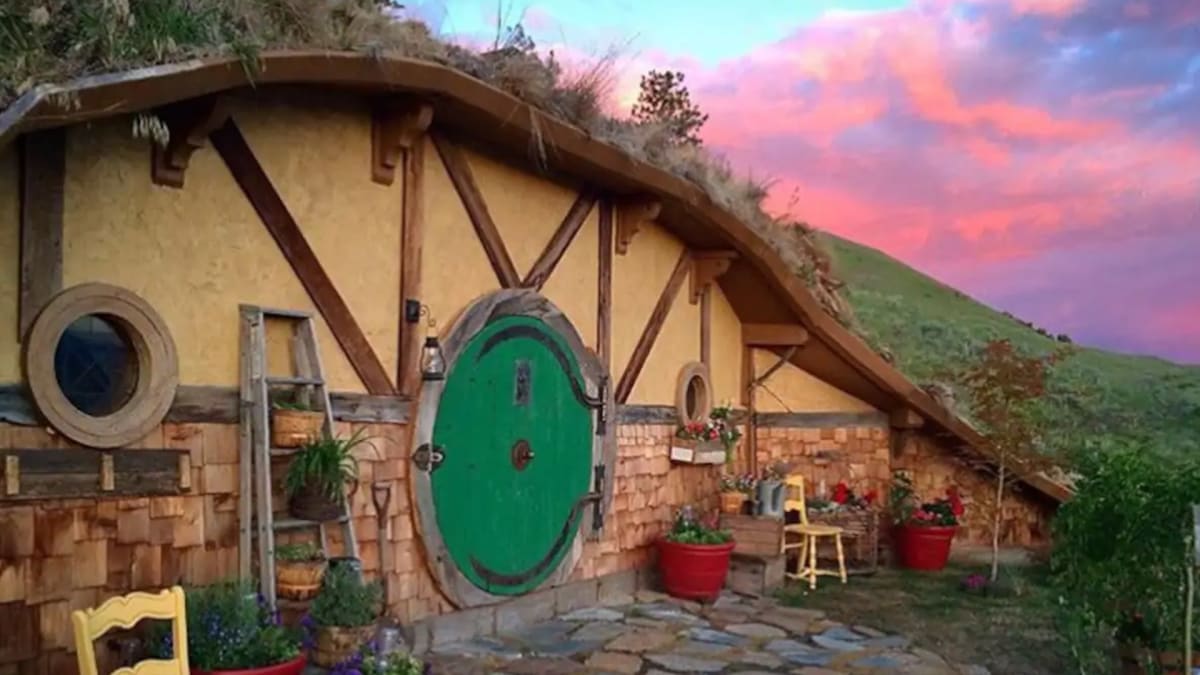
If you've ever wanted to stay in an Edwardian castle on 2,000 acres of private U.K. land, a villa with a swimming pool and private restaurant on-site in Tuscany, or a contemporary art villa in the rainforest with an infinity pool on the surfer's mecca coastline of Costa Rica, you'd go to Airbnb (ABNB) to find these listings and so many more.
For years, Airbnb has specialized in homes-away-from home with unique feels and amenities. It has rapidly expanded its unique categories, which include Castles, National Parks, Mansions, Amazing Pools, Luxe, Treehouses, and even OMG!, which have listings for a yellow submarine in New Zealand and a giant guitar-shaped cottage for "emotional healing" in South Korea.
DON'T MISS: Here Are the Only 3 Cars You Can Buy New for $20,000 or Less
Many people have flocked to these listings, and plenty of Airbnb's more mainstream homes, because they feel just like that: home. Why stay in a stuffy and generic $350 nightly hotel in the business district of Tokyo when you can instead spend it in a luxury home, complete with a special garden terrace, a zen garden, and a wooden open-air bath for 2 people -- all for the same price?
Airbnb has smartly differentiated itself from its competitors by offering what they cannot. It outsources uniqueness and delight to its hosts and charges both hosts and guests for the privilege of using its platform.
And while competitors like Hyatt (H), Marriott (MAR) and Hilton (HLT) are certainly sizable global operations, building uniqueness and delight into each of their owned and operated properties is both expensive and impossible. Traditional 325 square foot rooms with an attached bath and a Keurig (KDP) coffee maker, therefore, will have to do, with some exceptions (depending, of course, on how much more you're willing to pay).
But what about the other side of the coin? What if some guests aren't looking for guitar-shaped cottages or entire villas in Tuscany? What if they are doing business in Tokyo but don't have $350 for a traditional hotel room?
Airbnb to Begin Offering Cheaper Options
Until very recently, the simplest solution for our weary Tokyo traveler would have been staying far outside the city center or shacking up in a much cheaper hostel. Airbnb noted this need and iterated.
Beginning Wednesday, the lodging app will offer Rooms, a feature that allows budget-conscious travelers to rent out individual rooms in larger listings, providing an easy solution for hosts looking for cheaper options and guests who may not otherwise have their entire houses rented out on a given occasion.
Rooms start at an average of $67 per night.
"It is an admission that travelers care more about affordability than they did a year ago," CEO Brian Chesky said Wednesday. "This is going to be especially popular for the next generation of travelers. The average Gen Z traveler wants to pay less than $100 a night."
The new product offering is a sort of return to its roots. When Chesky and chairman Joe Gebbia started the company in 2007, they began by renting out a portion of their San Francisco apartment to help cover the rent. Now, though, the average Airbnb listing runs over $150 per night and is typically an entire house or apartment. Rooms will help to solve for that.
"If you want to take a trip abroad, to Rio, Tokyo, Mexico City—a city you’ve never been to it can be a little disorienting, especially if you’re a solo traveler or you’re a couple and you stay in a hotel in a hotel district where you don’t know anyone,” Chesky said. “Walking in the shoes of a local—I think this is a really great option.”







